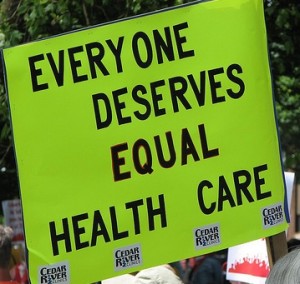The same goes for asthma, she said. "We know that for communities of color, they can show up in the emergency room for an asthma attack at higher rates than whites so the free preventive care under the Affordable Care Act (ACA) is really, really critical to keeping our communities healthy."
The news of the decision was especially welcomed among the state's Indian tribes. It turns out that folded into the ACA was a provision updating and making permanent a 1976 law on health care for American Indians and Alaska Natives.
Indians leaders had been working for fourteen years to get the law - called the Indian Health Care Improvement Act - reauthorized, and some people wanted it approved as a stand alone legislation.
Some of the updated provisions include giving authorization for hospice and assisted living care and establishing comprehensive behavioral health prevention, and treatment.
In response to the decision James Crouch, the executive director of the California Rural Indian Health Board, said it gives them confidence in their "efforts to establish a Low Income Health Program for our tribal communities and ensure successful implementation of some of the key improvements to the Indian Health Care Improvement Act."
For many advocates, today was decades in the making.
Remember Health Reform efforts, Act I? Ellen Wu says CPEHN was founded in the 1990's back when the Clinton administration was working on the issue.
"To see it 20 years later be able to... to come to fruition, is really an amazing experience."
Wu got choked up. "It’s the biggest thing that happened since the 60s, with Medicaid and Medicare and we get to be a part of it. it’s really exciting."
